Activists demand UN inquiry into Balochistan mass graves
Rights organizations have expressed shock over the discovery of mass graves in Pakistan's insurgency-marred Balochistan province and have called on the UN to send a fact-finding mission for an inquiry.
On January 25, three mass graves were discovered in the Khuzdar district of Pakistan's western Balochistan province. The corpses were too decomposed to be identified. As the news spread, the people gathered around the graves and started digging in the nearby area, where they unearthed two more mass graves.
The Asian Human Rights Commission (AHRC) says that 169 bodies have so far been recovered from the graves. Pakistani officials, however, deny these claims, arguing that the total number of bodies amounts to only 15.
Pakistan's independent Human Rights Commission, HRCP, disputes the government's figures. "The residents of Khuzdar have told us that the number of dead bodies uncovered is much higher than 15," Zohra Yusuf, the HRCP chairperson, told DW. The rights activist linked the discovery of the graves to the ongoing Balochistan conflict between the separatists and Islamabad.
Balochistan, which borders Afghanistan and Iran, is rich in oil, gas, and minerals, yet it remains Pakistan's poorest province. Baloch activists accuse Islamabad of usurping their wealth, fueling a protracted separatist movement which has been going on for decades.
The armed struggle for Baloch independence intensified after the murder of the influential Baloch leader Akbar Bugti in 2006 in a military operation. Rebel Baloch groups like the Balochistan Liberation Army have repeatedly attacked security forces and state installations. Most of the rebel leadership is thought to be in the UK, Afghanistan and Dubai.
The missing link
The AHRC has expressed "shock and deep concern” over the discovery of the mass graves in a statement issued on January 27. The organization suspects that these are the corpses of the missing Balochs, who have allegedly been arrested and later unlawfully killed by the Pakistani security agencies.
Islamabad denies launching a military operation in the province, but confirms the deployment of thousands of paramilitary forces to quell the insurgency. There have been accusations of serious human rights violations against the security forces.
Local rights groups have the details of 8,000 people who they say have disappeared over the past ten years and haven't been seen since. According to the AHRC, the bullet-riddled bodies of 23 missing persons were discovered in different parts of Balochistan in January 2012. The rights group also claims that 56 Balochs were murdered and dumped on roadsides from August 2011 to January 2012.
"The crimes of the security agencies in Balochistan and the mass-scale disappearances and extrajudicial killings have now been exposed by the discoveries of these mass graves," the AHRC said.
The Voice for the Baloch Missing Persons (VBMP), an organization made up of relatives of the missing people, is currently undertaking a "long march" from the southeastern Karachi city to capital Islamabad to protest against the disappearances.
However, Sarfaraz Bugti, the Interior Minister of Balochistan, blames the Indian spy agency, Research and Analysis Wing (RAW), and Baloch separatist groups for the killing and dumping of corpses in the Khuzdar mass graves.
"We have ordered a DNA testing for the identification of these bodies. But I think the Baloch Republican Army, the Baloch Liberation Army, and the Baloch Liberation Front - all funded by the RAW, are behind these killings," Bugti told DW.
International inquiry
But experts say that Islamabad will not allow an independent inquiry in Balochistan, as it is likely to reveal the extent of rights abuses and unlawful activities in the province.
Local and international rights organizations say the Pakistani military is not allowing anybody to examine the Khuzdar mass graves. They have therefore urged the United Nations to send a fact-finding mission to investigate the incident.
"It must be pointed out that the people of Pakistan do not expect any proper and transparent investigation from their government and the security agencies as they themselves are involved in the killings, enforced disappearances and the concealment of the crimes. The importance of a UN report therefore cannot be over emphasized," the AHRC said.
Nazish Brohi, a social activist in Karachi, is also in favor of an international inquiry, but argues it should be ordered by Balochistan's provincial government, headed by Chief Minister Abdul Malik.
"The elected government of Balochistan should call for an international inquiry. It should come out and say that the issue is not in its control," Brohi told DW.
But Malik Siraj Akbar, a Washington-based Pakistani expert on Balochistan, says the conflict is not between Baloch separatists and the chief minister. "It is a conflict between the Baloch people and the Pakistani army and the federal government," Akbar said, adding that Malik could not do much to resolve this issue considering his limited influence over the army, the intelligence agencies and the Baloch separatists.
"Only an investigation conducted by credible organizations such as the United Nations, Human Rights Commission of Pakistan and similar international bodies will be acceptable to the Baloch people. In addition, the international community must play its role in bringing the people behind these crimes to justice," Akbar said.
- Date 28.01.2014
- Author Shamil Shams
- Editor Gabriel Domínguez
- Share Send Facebook Twitter Google+ More
- Feedback: Send us an e-mail. Please include your name and country in your reply.
- Print Print this page
- Permalink http://dw.de/p/1AyVq

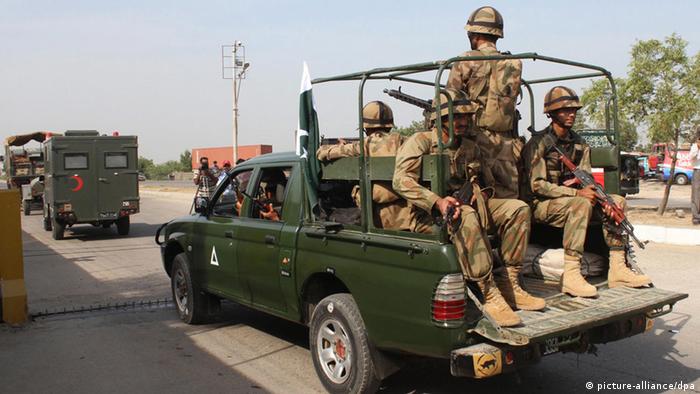
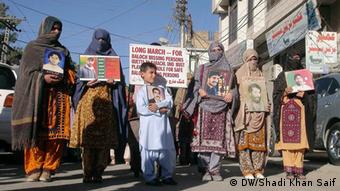
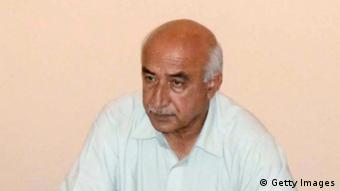
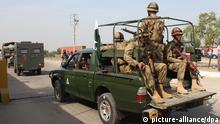
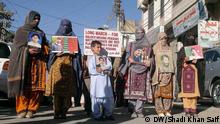

No comments:
Post a Comment